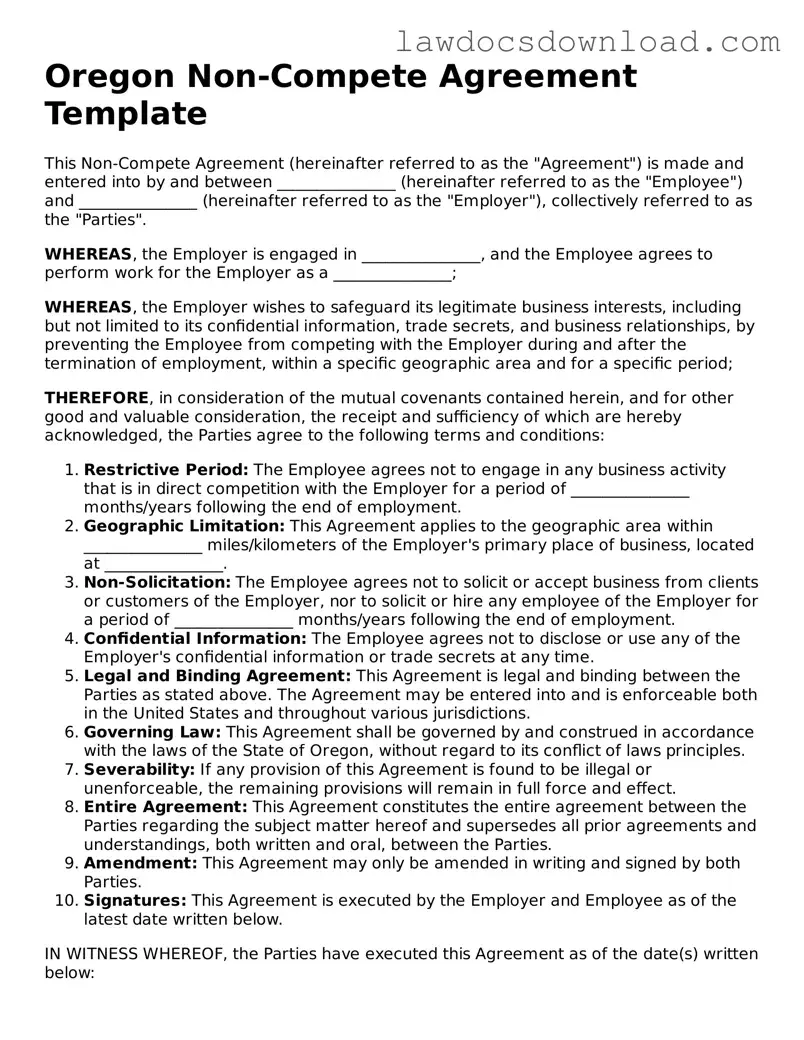Oregon Non-Compete Agreement Template
This Non-Compete Agreement (hereinafter referred to as the "Agreement") is made and entered into by and between _______________ (hereinafter referred to as the "Employee") and _______________ (hereinafter referred to as the "Employer"), collectively referred to as the "Parties".
WHEREAS, the Employer is engaged in _______________, and the Employee agrees to perform work for the Employer as a _______________;
WHEREAS, the Employer wishes to safeguard its legitimate business interests, including but not limited to its confidential information, trade secrets, and business relationships, by preventing the Employee from competing with the Employer during and after the termination of employment, within a specific geographic area and for a specific period;
THEREFORE, in consideration of the mutual covenants contained herein, and for other good and valuable consideration, the receipt and sufficiency of which are hereby acknowledged, the Parties agree to the following terms and conditions:
- Restrictive Period: The Employee agrees not to engage in any business activity that is in direct competition with the Employer for a period of _______________ months/years following the end of employment.
- Geographic Limitation: This Agreement applies to the geographic area within _______________ miles/kilometers of the Employer's primary place of business, located at _______________.
- Non-Solicitation: The Employee agrees not to solicit or accept business from clients or customers of the Employer, nor to solicit or hire any employee of the Employer for a period of _______________ months/years following the end of employment.
- Confidential Information: The Employee agrees not to disclose or use any of the Employer's confidential information or trade secrets at any time.
- Legal and Binding Agreement: This Agreement is legal and binding between the Parties as stated above. The Agreement may be entered into and is enforceable both in the United States and throughout various jurisdictions.
- Governing Law: This Agreement shall be governed by and construed in accordance with the laws of the State of Oregon, without regard to its conflict of laws principles.
- Severability: If any provision of this Agreement is found to be illegal or unenforceable, the remaining provisions will remain in full force and effect.
- Entire Agreement: This Agreement constitutes the entire agreement between the Parties regarding the subject matter hereof and supersedes all prior agreements and understandings, both written and oral, between the Parties.
- Amendment: This Agreement may only be amended in writing and signed by both Parties.
- Signatures: This Agreement is executed by the Employer and Employee as of the latest date written below.
IN WITNESS WHEREOF, the Parties have executed this Agreement as of the date(s) written below:
Employer Signature: ___________________________ Date: _______________
Employee Signature: ___________________________ Date: _______________

